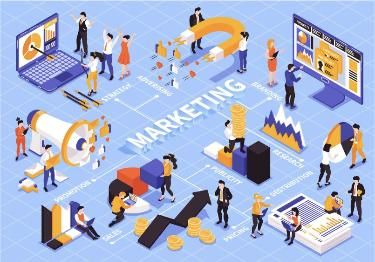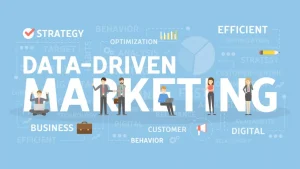
The Evolution of Marketing: From Simple Trade to Digital Frontiers
Marketing is an ever-evolving field that has transformed alongside society, technology, and consumer behavior. From its humble beginnings as a basic trade activity to its current role as a sophisticated, data-driven practice, marketing has consistently adapted to meet the changing needs of businesses and their audiences. Understanding this evolution offers valuable insights into how businesses can position themselves for success in the future.
The Early Days: Barter and Basic Trade
Marketing’s origins can be traced back to ancient times when trade was the primary form of commerce. In these early societies, marketing was informal, centered around bartering goods and services. Transactions were simple and local, relying on word of mouth and personal relationships to build trust between traders.
As societies grew more complex, marketplaces became hubs of economic activity. Sellers began to use signs, symbols, and town criers to attract customers, marking the earliest forms of advertising. These rudimentary efforts laid the foundation for the organized marketing systems we know today.
The Industrial Revolution: The Birth of Modern Marketing
The Industrial Revolution in the 18th and 19th centuries was a turning point for marketing. Mass production created an abundance of goods, and businesses needed strategies to sell their products to larger, more dispersed markets. This era saw the emergence of branding, as companies began to differentiate their offerings through unique names, logos, and packaging.
Advertising took center stage during this period, with newspapers, magazines, and billboards becoming popular mediums. The development of railroads and the postal system allowed businesses to reach consumers beyond their local areas, ushering in the era of direct mail and catalog marketing.
The Digital Age: A Marketing Revolution
The advent of the internet in the late 20th century marked a seismic shift in marketing. Digital platforms transformed how businesses interacted with consumers, giving rise to new channels such as websites, email, and social media.
Search engines and pay-per-click advertising allowed businesses to target specific audiences with precision, while analytics tools provided insights into campaign performance. Social media platforms like Facebook, Instagram, and Twitter became integral to brand communication, enabling real-time engagement and content sharing.
E-commerce emerged as a dominant force, with platforms like Amazon and Alibaba reshaping the retail landscape. Personalization became a key focus, as businesses used data to deliver tailored experiences to consumers.
The Era of Data and Artificial Intelligence
Today, marketing is driven by data and powered by artificial intelligence (AI). Businesses use sophisticated algorithms to analyze consumer behavior, predict trends, and automate processes. AI enables personalized recommendations, chatbots for customer service, and even content creation.
Influencer marketing and user-generated content have become essential strategies, leveraging the power of social proof and community engagement. Meanwhile, sustainability and social responsibility have gained prominence, as consumers increasingly demand ethical and transparent practices from brands.
The Future of Marketing: What Lies Ahead?
The evolution of marketing is far from over. Emerging technologies like virtual reality (VR), augmented reality (AR), and blockchain are poised to reshape the field once again. As privacy concerns grow, businesses must find ways to balance data-driven marketing with respect for consumer rights.
The future of marketing will likely focus on creating immersive, personalized experiences that build deeper connections with consumers. Companies that embrace innovation while staying true to their values will be well-positioned to thrive in this rapidly changing landscape.
Marketing has come a long way from the days of simple trade and bartering. Its evolution reflects the progress of society,




